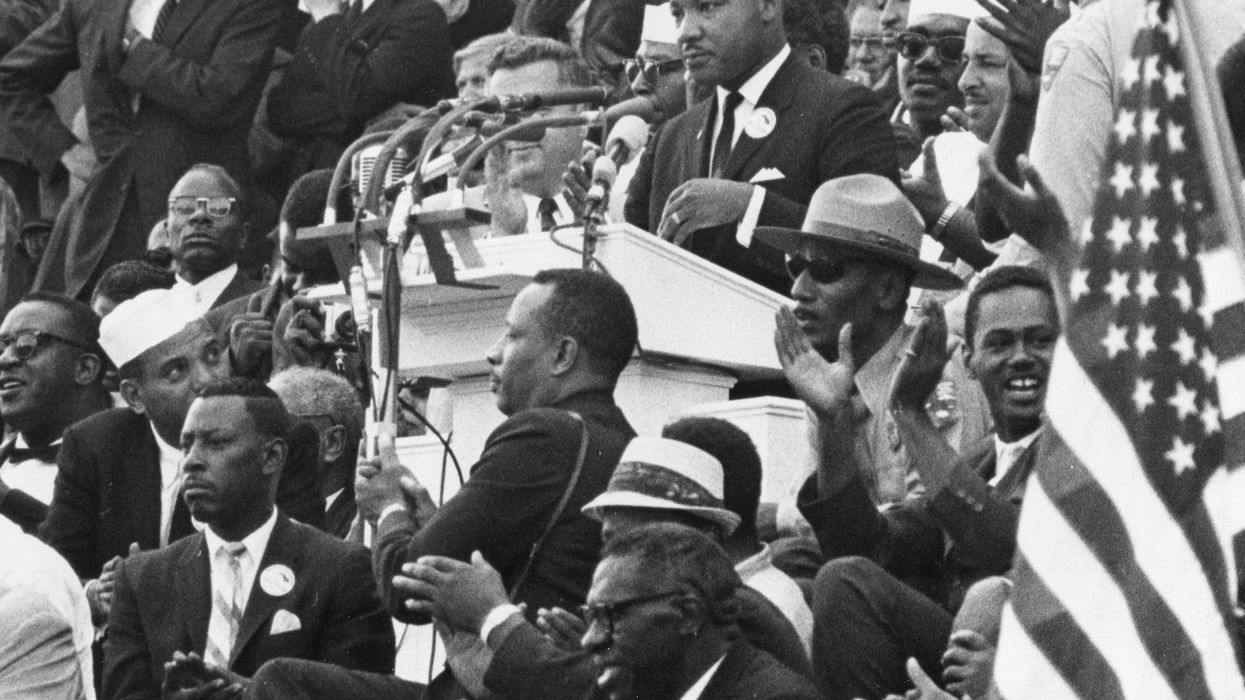Johnson is a United Methodist pastor, the author of "Holding Up Your Corner: Talking About Race in Your Community" (Abingdon Press, 2017) and program director for the Bridge Alliance, which houses The Fulcrum.
As I reflect, my spirit is a mix of melancholy and optimism, a paradox inherent in the annual observance of the Martin Luther King Jr. holiday. The legacy of Dr. King, who embodied the audacity of hope and the relentless pursuit of justice, remains a prophetic standard in these uncertain times, illuminating a path toward the "beloved community" he so passionately envisioned.
Our democracy, a system designed to uphold the principles of liberty, justice and equality, seems to be teetering on a precipice. The impending 2024 presidential election doesn't invoke optimism but provokes division and uncertainty. In these moments of instability, I cling to King's unyielding faith in the power of unity and the promise of democracy. His dream was not one of complacency but of continuous striving – striving to create a society where equity is not a hollow promise but a lived reality.
There is no discounting the positive societal changes witnessed over the years since King's death, particularly in civil rights and social justice. The Civil Rights Act of 1964 and the Voting Rights Act of 1965, both championed by King, marked the beginning of a new era of progress, setting a precedent for the fight against discrimination in all its forms.
The world King left behind has changed dramatically, yet the persistent racial, socio-economic and geopolitical imbalances he fought against are still enormously present. The scales of justice tip more towards privilege than the marginalized, more towards the haves than the have-nots. And there is still much ground to cover.
I'd like to see more change in the realm of economic equity. The wealth gap, particularly along racial lines, continues to be a pressing issue. Second is greater expansion, accessibility and inclusiveness of voter rights. Respectfully, that impacts above all other aspects of life, including access to quality education, health care and opportunities for upward mobility.
Amid the noise, I listen and lean to King's resilience and unrelenting belief in the power of love and unity to overcome the deepest divides. The "beloved community" he envisaged isn't a utopia free from conflict; instead, it is one where discord is contested through mutual respect and understanding, where love and justice supplant hate and inequity.
The beloved community is a divine promise yet to be fully realized. It is not an unreachable ideal but a call to action. It is a challenge for us, regardless of race, religion, or socio-economic status, to actively contribute to building a society that reflects the values of equity, justice and love. Our shared journey towards achieving this goal is a collaborative one.
Each of us has a role in bringing about this change. One way I can contribute is through advocacy and education. Through our respective platforms we can create more informed and engaged communities, bringing us closer to realizing King's dream amid these uncertain times.
As we engage in the democratic work and responsibilities of this year, let us believe that our democracy, though seemingly unstable, is not beyond repair. The power to effect change lies within ourselves. This year's election is a crucial opportunity to shape history and create a narrative of progress, inclusivity and justice. Our respective actions, or lack thereof, will determine the course of our nation and the world's future.
In paying tribute to the enduring legacy of the Rev. Martin Luther King Jr., we should not merely laud his achievements and idolize his persona. Instead, let our nation wholeheartedly embrace his vision by actively engaging in the battle for social justice. Let us strive to transform our society into one where love and justice reign supreme. Though the path may be fraught with challenges, let King's witness of hope and unity anchor our efforts in unsettling times.
We may not simply treat this year's national observance as a mere day off but rather as a call to action for each of us to contribute to the advancement and uplift of us all. I pray we respect King's divine expectation of a beloved community not as a relic of the past but as a blueprint for the now and the not yet.




















Trump & Hegseth gave Mark Kelly a huge 2028 gift